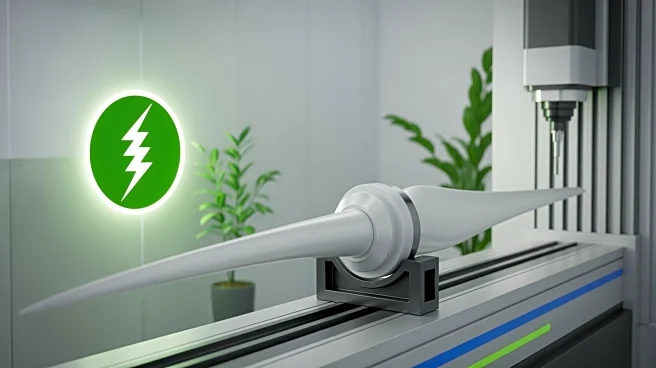What's Happening?
Manufacturers are increasingly adopting sustainable machining practices to address climate change and reduce environmental impact. The industry, responsible for a significant portion of global emissions, is under pressure to improve processes and achieve
net-zero goals. Strategies include upgrading machinery for energy efficiency, embracing circular manufacturing, and building ethical supply chains. Tools like Sandvik Coromant’s Sustainability Analyzer help measure energy consumption and CO2 emissions, enabling targeted improvements. The focus is on reducing waste and emissions while enhancing productivity and cost-efficiency.
Why It's Important?
The shift towards sustainable machining is crucial for reducing the industry's environmental footprint and aligning with global climate goals. By improving energy efficiency and reducing waste, manufacturers can lower operational costs and increase productivity. This transition supports broader efforts to limit global temperature rises and mitigate climate change impacts. The adoption of circular manufacturing and ethical supply chains also promotes social responsibility and community engagement, enhancing the industry's reputation and long-term viability.
What's Next?
Manufacturers are expected to continue investing in energy-efficient technologies and automation to further reduce emissions and waste. The development of buy-back arrangements and recycling processes will likely expand, encouraging consumers to participate in sustainability efforts. As the industry progresses, collaboration with environmental organizations and adherence to international standards will be essential to achieving net-zero targets. Stakeholders may also push for more stringent regulations and incentives to accelerate the adoption of sustainable practices.
Beyond the Headlines
The move towards sustainable machining could lead to significant shifts in industry standards and consumer expectations. Ethical sourcing and transparency may become key differentiators for manufacturers, influencing purchasing decisions and brand loyalty. The integration of advanced technologies and data analytics in manufacturing processes could drive innovation and competitiveness, reshaping the industry's landscape. Long-term, these efforts may contribute to a more resilient and sustainable global economy.















